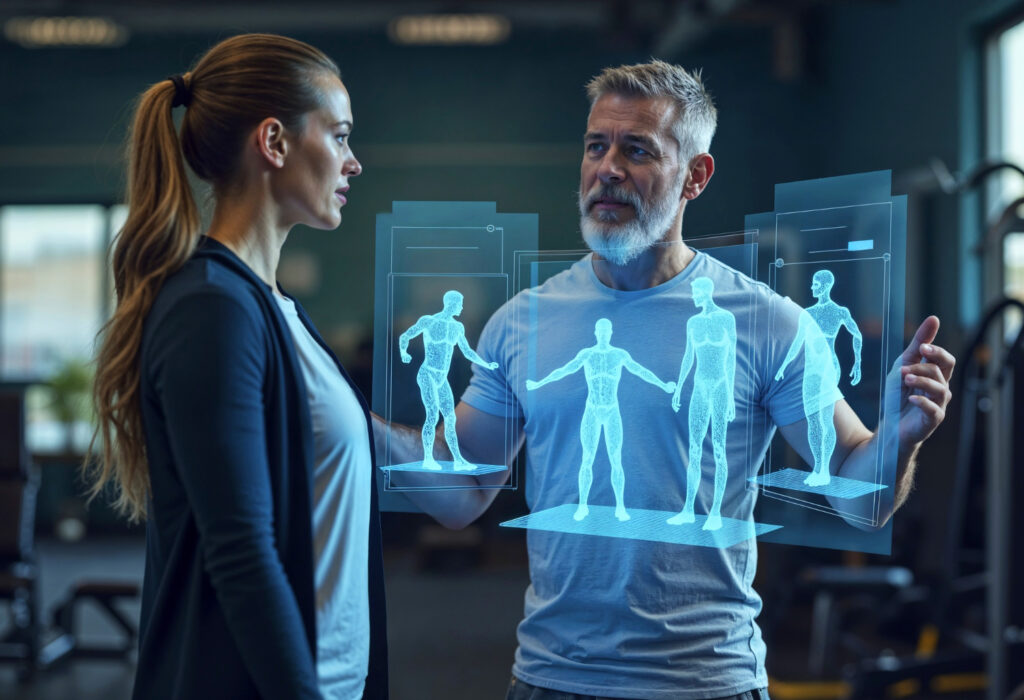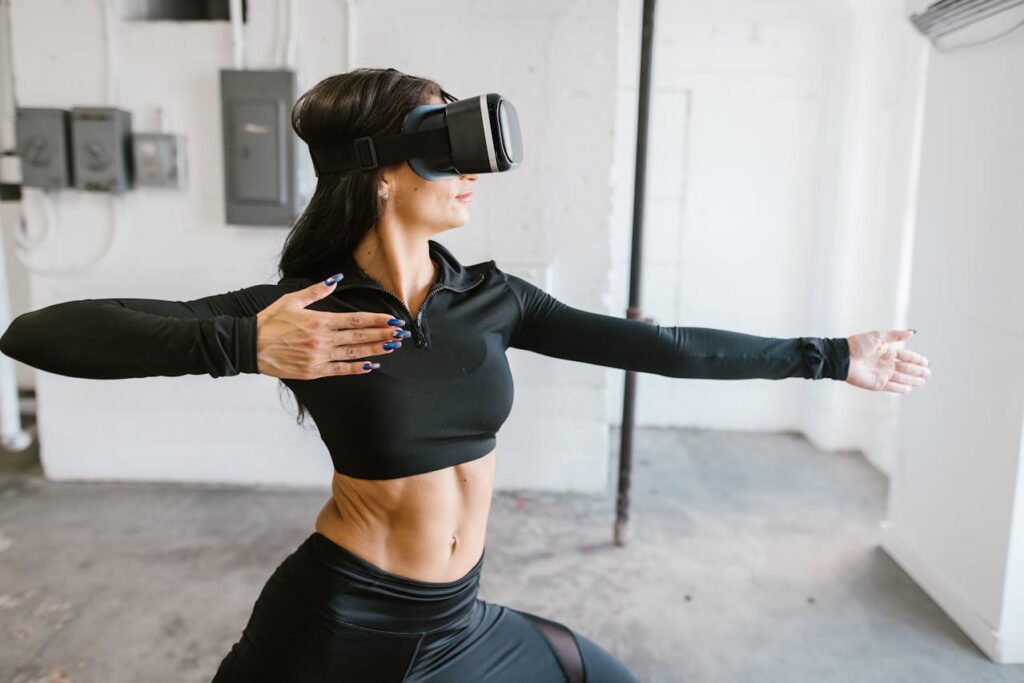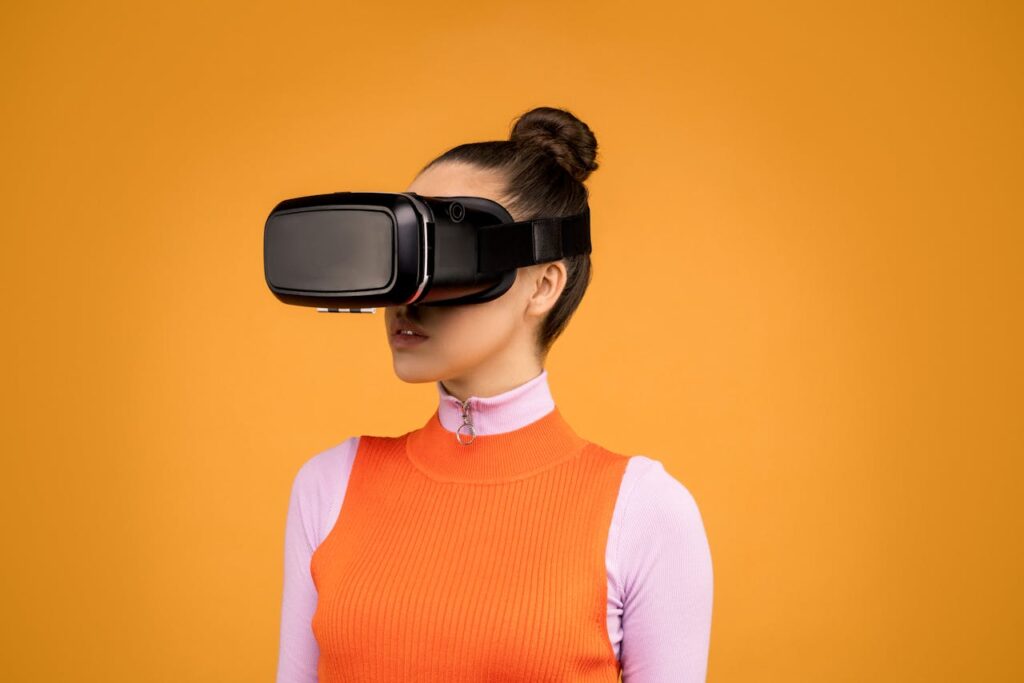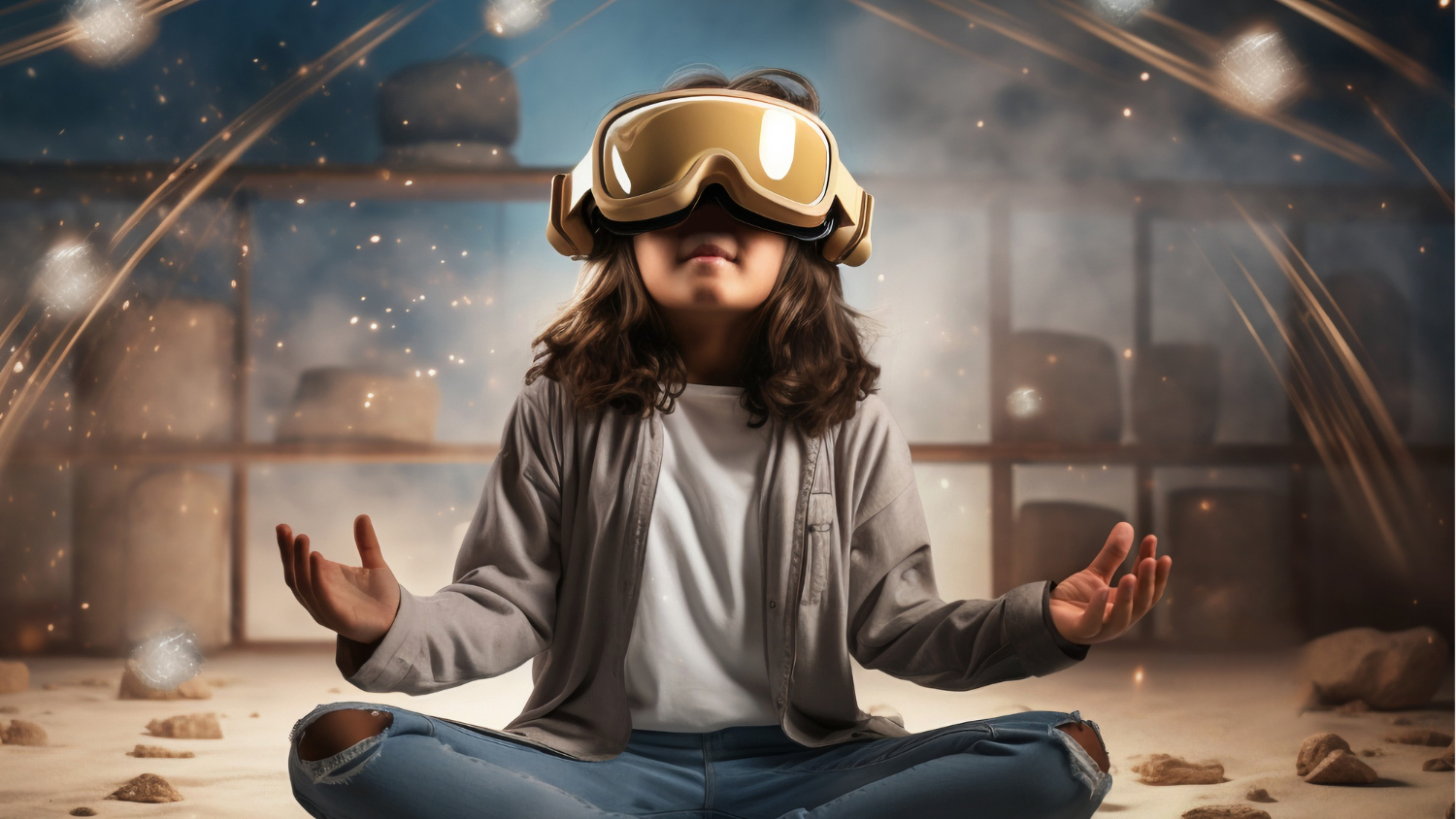Introduction
In recent years, the fitness world has seen a powerful shift toward physical and mental health. The idea is simple but revolutionary: your brain needs a workout just as much as your body does. In a society overwhelmed by distractions, burnout, and stress. Mental resilience is becoming as vital as cardiovascular endurance.
At the same time, artificial intelligence (AI) is transforming how we live, work, and train. While much of the AI fitness conversation has focused on physical exercise, personalized workout apps, smart gym equipment, and diet planning, an emerging space is showing even more promise: AI and mental fitness.
Let’s explore how AI is helping people train their minds, build emotional resilience, and take a proactive approach to mental well-being.

What Is Mental Fitness?
Mental fitness is the ability to think, manage emotions, stay focused, and maintain a healthy mindset—even under stress. It’s not about avoiding anxiety or hardship, but about responding to life’s challenges with balance and clarity.
Just like physical exercise improves your heart health and muscle tone, mental fitness practices—like mindfulness, journaling, cognitive training, and breathwork—help you build psychological flexibility, creativity, memory, and emotional intelligence.
The problem? Most people know they need it, but don’t know how to start, or they drop off due to a lack of structure. That’s where AI steps in.
The Rise of AI-Powered Mental Fitness Tools
AI is increasingly being used to create personalized, intelligent mental fitness solutions. These tools go far beyond reminders to meditate. They use natural language processing, pattern recognition, and machine learning to understand your mental state, suggest tailored practices, and even predict when you’re likely to burn out.
Here are a few key categories where AI is reshaping the mental fitness space:
1. AI Chatbots for Mind Support
AI-powered chatbots like Wysa and Woebot are being used by millions to support mental health and emotional fitness. These bots use conversational AI to listen to your problems, reflect your feelings, and suggest science-backed techniques like CBT (Cognitive Behavioral Therapy) and mood journaling.
Unlike traditional mental health apps, these chatbots feel like you’re talking to someone who gets you, without judgment or the fear of stigma. They’re always available, and many users report reduced anxiety and improved self-awareness just from daily check-ins.
2. Cognitive Training Apps with AI Learning Paths
Platforms like Lumosity and Elevate pioneered brain training, but newer apps are now using AI to adapt in real time. For example, if you’re struggling with short-term memory or focus, the AI adjusts your game difficulty, identifies your weakest areas, and suggests exercises to improve them.
Over time, the system personalizes a “mental workout routine,” similar to how a personal trainer builds your fitness plan. This encourages consistency and engagement, two things that most people struggle with when trying to stay mentally sharp.
3. Mindfulness and Meditation with Smart Feedback
Apps like Headspace and Calm are incorporating AI to create more tailored mindfulness experiences. For example, if your breathing is shallow or your heart rate is elevated (tracked through a wearable or camera), the app can adjust the meditation or suggest a different breathing rhythm to calm you.
More advanced systems use voice sentiment analysis or facial expressions to detect stress levels. This allows for a more responsive, personalized mental reset, not just one-size-fits-all routines.

How AI Is Making Mental Fitness More Accessible
One of the greatest benefits of AI in mental wellness is accessibility. Therapy and coaching are effective, but often expensive and hard to schedule. AI bridges that gap, offering millions of people 24/7 support, guidance, and structure, for free or at a low cost.
This doesn’t replace professionals, but it does fill a crucial gap in daily maintenance, motivation, and early intervention. It also helps users:
- Develop consistent mental habits
- Track emotional trends
- Identify stress triggers early
- Build awareness and accountability
It’s like having a mental fitness coach in your pocket.

The Future of AI and Human Mental Performance
We’re at the very beginning of what AI can do for the mind. Imagine a few years from now:
- Smart homes detect your mood and adjust lights, music, or scents to calm your nervous system.
- AI therapy assistants summarize your journal or conversations to identify long-term behavioral patterns.
- AI-enhanced wearables tracking not just your steps or sleep, but your mental recovery—alerting you when you need a rest day for your mind.
There’s even talk of neuroadaptive interfaces—headbands or earbuds that monitor brainwaves and respond to mental fatigue, helping you stay sharp during deep work or creativity sessions.
Concerns and Ethical Considerations
Of course, using AI for mental fitness also raises valid concerns:
- Privacy: Mental health data is highly personal. Apps must be transparent about how they collect and use this information.
- Overdependence: While AI is helpful, it shouldn’t replace human connection or clinical help.
- Bias and Misdiagnosis: If an AI misunderstands or generalizes your emotions, it can give advice that doesn’t fit your unique situation.
That’s why the future of mental fitness will likely combine human insight and AI precision, not one over the other.
Final Thoughts: Train Your Brain Like You Train Your Body
In the same way we track our steps, calories, and heart rate, we’re entering an age where tracking mental energy, clarity, and resilience will become the norm. And thanks to AI, this mental fitness revolution is more achievable and scalable than ever before.
If you’ve ever struggled to stay consistent with meditation, focus, journaling, or emotional check-ins, AI might just be the coach you didn’t know you needed.
So ask yourself: Are you training your mind as well as you train your body?
The future of fitness isn’t just physical. It’s mental. And it’s already here.


